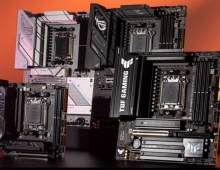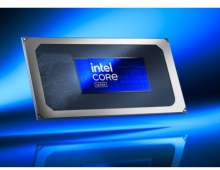
New York Launches Antitrust Probe Into Intel
New York state launched a formal investigation of Intel on Thursday, to determine if chipmaker broke state and U.S. antitrust laws against AMD.
New York state Attorney General Andrew Cuomo said his office issued a broad subpoena investigating whether Intel violated state and federal antitrust laws by coercing customers to exclude its main rival, AMD, from the worldwide market for x86 computer processing units (CPU).
"After careful preliminary review, we have determined that questions raised about Intel's potential anticompetitive conduct warrant a full and factual investigation," said Attorney General Cuomo. "Protecting fair and open competition in the microprocessor market is critical to New York, the United States, and the world. Businesses and consumers everywhere should have the ability to easily choose the best products at the best price and only fair competition can guarantee it. Monopolistic practices are a serious concern particularly for New Yorkers who are navigating an information-intensive economy."
The subpoena served today on Intel seeks documents and information concerning Intel?s pricing practices and possible attempt to exclude competitors through its market domination. The information sought is relevant to whether Intel, among other things:
- Penalized its customers, primarily computer manufacturers, for purchasing x86 computer processing units (CPU) from competitors;
- Improperly paid customers for exclusivity;
- Illegally cut off competitors from distribution channels.
"New York State?s decision, based on its findings to date, to open a formal investigation of Intel?s anticompetitive business practices is good news for computer buyers in NY and throughout the United States," said Tom McCoy, AMD?s Executive Vice President, Legal Affairs and Chief Administrative Officer, reacting to the new Antitrust Investigation:
Similar antitrust allegations have been examined by authorities in Europe and Asia and resulted in formal actions, including a cease and desist order, against Intel. In July 2007, the European Commission reached and the Korean Fair Trade Commission reached preliminary conclusions that Intel violated competition law. In 2005, the Japanese Fair Trade Commission concluded that Intel violated its competition laws and Intel agreed to cease and desist.
On Monday in Brussels, Intel said the company had responded to antitrust charges filed by the European Commission and would seek a hearing. The commission charged Intel last July with slashing prices below cost and offering huge rebates in an illegal attempt to drive the smaller AMD out of the market. The EC charges and the response are confidential.
According to a 2005 lawsuit AMD filed against Intel in Wilmington, Delaware, Intel abused its No. 1 position in the $30-plus billion market for microprocessors by encouraging its customers to avoid AMD. Intel has denied the allegations.
"After careful preliminary review, we have determined that questions raised about Intel's potential anticompetitive conduct warrant a full and factual investigation," said Attorney General Cuomo. "Protecting fair and open competition in the microprocessor market is critical to New York, the United States, and the world. Businesses and consumers everywhere should have the ability to easily choose the best products at the best price and only fair competition can guarantee it. Monopolistic practices are a serious concern particularly for New Yorkers who are navigating an information-intensive economy."
The subpoena served today on Intel seeks documents and information concerning Intel?s pricing practices and possible attempt to exclude competitors through its market domination. The information sought is relevant to whether Intel, among other things:
- Penalized its customers, primarily computer manufacturers, for purchasing x86 computer processing units (CPU) from competitors;
- Improperly paid customers for exclusivity;
- Illegally cut off competitors from distribution channels.
"New York State?s decision, based on its findings to date, to open a formal investigation of Intel?s anticompetitive business practices is good news for computer buyers in NY and throughout the United States," said Tom McCoy, AMD?s Executive Vice President, Legal Affairs and Chief Administrative Officer, reacting to the new Antitrust Investigation:
Similar antitrust allegations have been examined by authorities in Europe and Asia and resulted in formal actions, including a cease and desist order, against Intel. In July 2007, the European Commission reached and the Korean Fair Trade Commission reached preliminary conclusions that Intel violated competition law. In 2005, the Japanese Fair Trade Commission concluded that Intel violated its competition laws and Intel agreed to cease and desist.
On Monday in Brussels, Intel said the company had responded to antitrust charges filed by the European Commission and would seek a hearing. The commission charged Intel last July with slashing prices below cost and offering huge rebates in an illegal attempt to drive the smaller AMD out of the market. The EC charges and the response are confidential.
According to a 2005 lawsuit AMD filed against Intel in Wilmington, Delaware, Intel abused its No. 1 position in the $30-plus billion market for microprocessors by encouraging its customers to avoid AMD. Intel has denied the allegations.





















